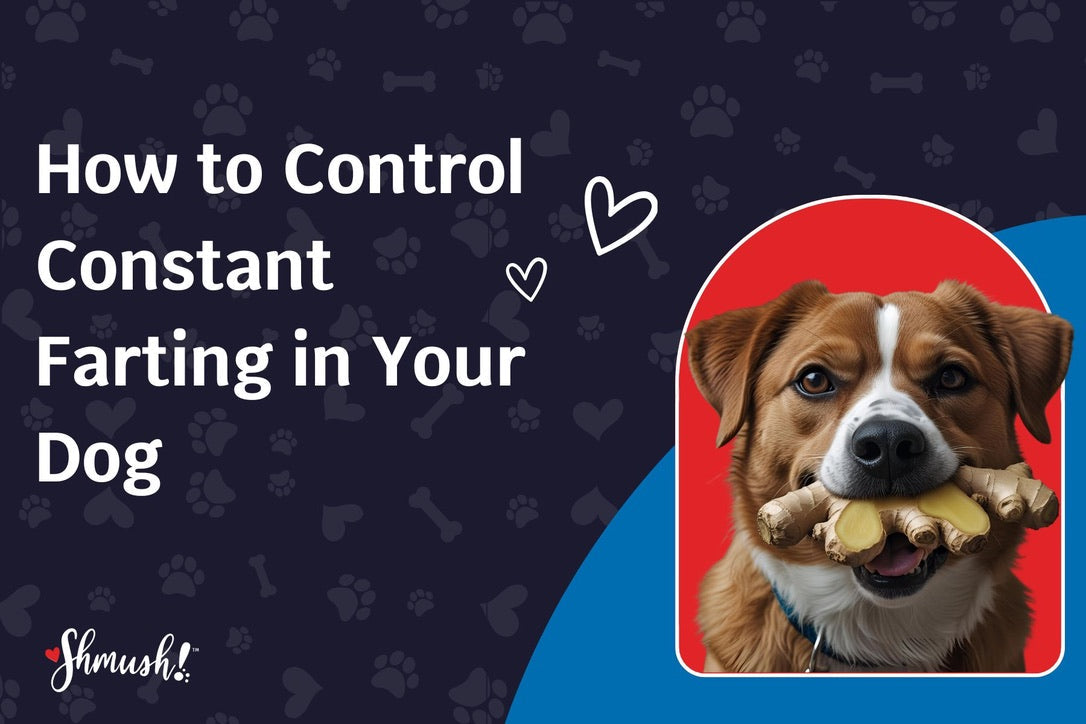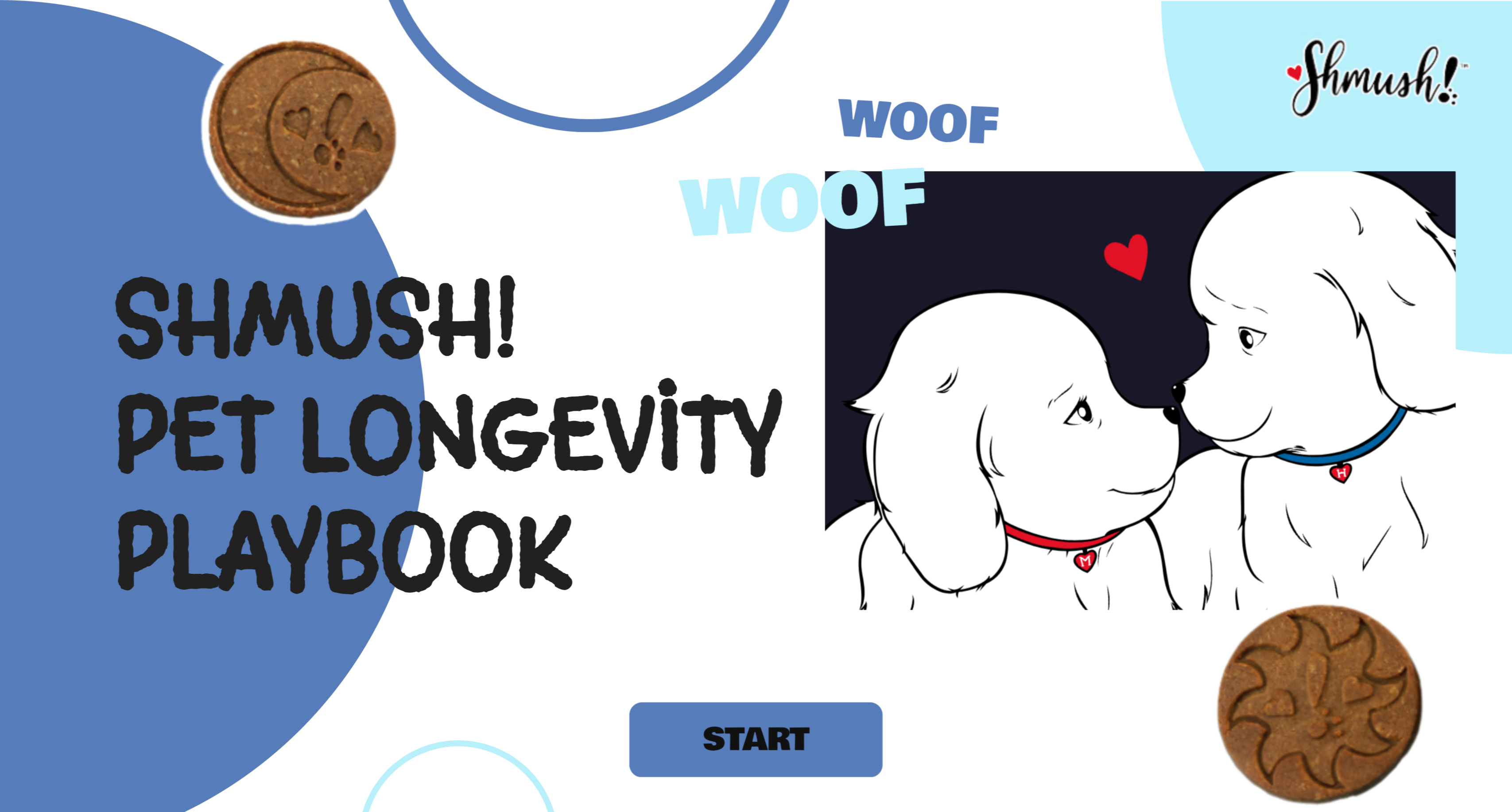

💨 How to Control Constant Farting in Your Dog
Yes, Your Dog’s Gas Has a Story—and We’re Here to Help
Let’s get real: we love our dogs unconditionally, but constant farting? That’s a little tough on the nose (and the living room vibes). If your pup’s backside is turning your home into a gas chamber, it’s time to look at what’s going on inside that adorable belly.
The good news: excessive flatulence can often be managed with simple diet and lifestyle tweaks. Here’s your full scoop on why your dog is so gassy—and what you can do about it.
🧐 Common Causes of Dog Flatulence
1. Swallowing Too Much Air
Dogs that eat too fast or suffer from nervous eating gulp down air, which has to come out... eventually. Short-nosed breeds (hello, Bulldogs and Pugs 👋) are especially prone due to their anatomy.
2. Dietary Indiscretions
Trash can raids, counter surfing, or “mystery snacks” at the dog park? These often result in digestive upsets and stink bombs later on.
3. Food Sensitivities
Some dogs simply don’t digest certain ingredients well—especially dairy, grains, soy, or high-fat human foods.
4. Sudden Diet Changes
Switching food too quickly can throw their gut bacteria out of whack. Dogs need gradual transitions to avoid tummy drama.
5. Underlying GI Conditions
Chronic gas may point to inflammatory bowel disease, parasites, or pancreatitis. If the toots are constant and smelly, check in with your vet.
🥣 Dietary Fixes to Clear the Air
✅ Go Gradual with New Foods
When changing your dog’s food, transition slowly over 7–10 days. This lets their gut adjust without a gassy rebellion.
✅ Choose Low-Fiber, Highly Digestible Food
Look for dog food that’s:
-
Low in fat and fiber
-
Made with simple proteins and limited ingredients
-
Specifically designed to reduce flatulence
✅ Avoid Known Gas Culprits
Skip:
-
Beans and legumes
-
Dairy products
-
Spicy or rich foods
-
Soy, corn, and wheat
-
Scraps from your dinner plate (sorry, not even the crusts!)
🐕 Feeding Tips to Minimize Gas
🐌 Slow It Down
Use a slow-feeder bowl or puzzle feeder to reduce gulping and air intake.
🧮 Smaller Meals, More Often
Split their daily portion into 3–4 smaller meals. This helps digestion and prevents food from fermenting in the gut.
⏳ Wait After Exercise
Avoid feeding right after a high-energy romp. Give them 30–60 minutes to cool down first.
🚶 Exercise & Behavioral Adjustments
🏃♂️ Get Moving
Regular, moderate exercise helps move food through the digestive tract, reducing gas build-up.
🐾 Calm the Feeding Zone
If your dog gets anxious or competitive during meals (especially with other pets nearby), feed them in a quiet, separate space to encourage slower eating.
🦠 Probiotics & Digestive Support
🧫 Probiotics = Gut Goodness
Add a probiotic supplement to support healthy gut bacteria and improve digestion. Look for dog-specific options with strains like Lactobacillus or Bifidobacterium.
🌿 Natural Supplements
Ask your vet about gentle carminatives—herbs or supplements that reduce gas, like:
-
Ginger
-
Fennel
-
Activated charcoal (in vet-approved forms)
🩺 When to See the Vet
Flatulence becomes a red flag when paired with:
-
Vomiting or diarrhea
-
Loss of appetite
-
Weight loss
-
Straining or discomfort when pooping
Keep a log of diet changes and symptoms—this helps your vet pinpoint potential triggers and craft a personalized plan.
🚫 Foods to Always Avoid
Some foods not only cause gas—they’re dangerous for dogs:
-
❌ Chocolate
-
❌ Onions or garlic
-
❌ Grapes or raisins
-
❌ Fatty table scraps
-
❌ Spicy, salty, or processed foods
Stick to dog-safe treats (like our Shmush! Health Biscuits) that support digestion instead of disrupting it.
🐾 Final Thoughts: Cut the Toots with Smarter Choices
Dog farts may be funny… until they’re not. But with a little attention to diet, feeding habits, and overall health, you can significantly reduce the gas and bring some much-needed fresh air into your life.
Remember:
-
🚫 Avoid fast eating and gassy ingredients
-
🍽 Feed digestible, low-fat meals
-
🧘♂️ Manage stress during feeding
-
💬 Talk to your vet if things get too gassy

Free Pet Longevity Playbook
Expert tips for helping your dog live a longer, healthier life—delivered straight to your inbox.